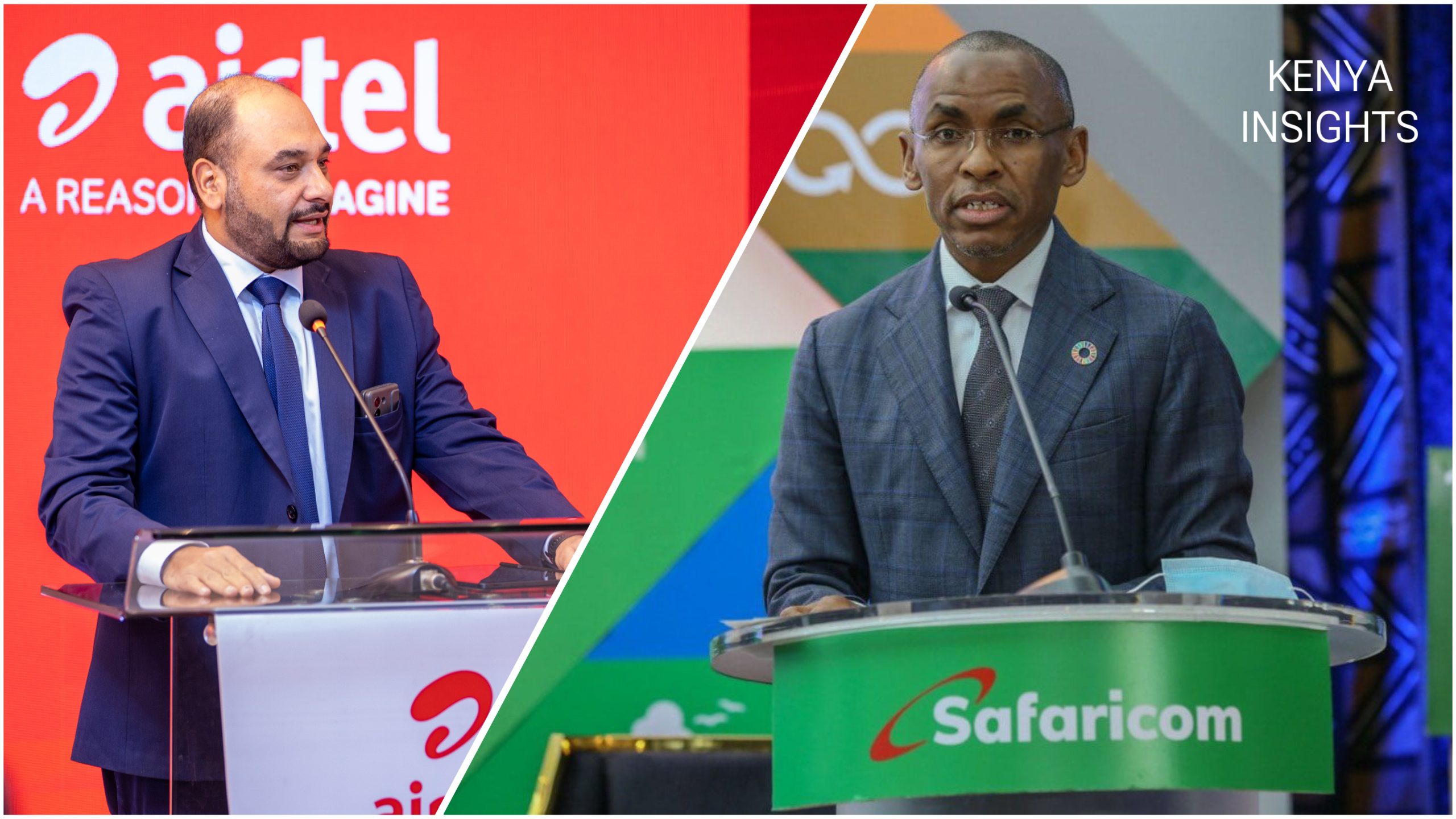Airtel Kenya’s spectacular subscriber growth surge coincides with mounting allegations against market leader Safaricom over data sharing with security agencies
In a dramatic shift that reflects both market dynamics and growing privacy concerns, Airtel Kenya has significantly outpaced industry leader Safaricom in subscriber growth during the first quarter of 2025, adding 3.01 million new customers compared to Safaricom’s 1.7 million additions.
The milestone achievement, which saw Airtel cross the 24 million subscriber mark for the first time, represents a 13.95 percent quarterly growth rate that dwarfs Safaricom’s 3.6 percent expansion during the same period.
This performance gap raises critical questions about whether mounting surveillance allegations against Safaricom are influencing customer behavior in Kenya’s highly competitive telecommunications market.
Latest data from the Communications Authority of Kenya (CA) reveals that Airtel’s subscriber base jumped from 21.5 million in December 2024 to 24.5 million by March 2025.
Meanwhile, Safaricom’s growth, while still substantial in absolute terms, expanded from 46.6 million to 48.2 million subscribers during the same period.
The contrast is stark: Airtel’s growth rate of nearly 14 percent against Safaricom’s 3.6 percent represents a performance differential that industry analysts haven’t seen in years.
This surge occurred within an overall industry growth rate of 6.7 percent, suggesting that Airtel’s gains may be coming at the expense of its larger rival.
“We are deeply humbled by the support of over 24 million customers who continue to believe in us,” said Airtel Kenya Managing Director Ashish Malhotra. “This is not the destination, it is part of a longer journey.”
Surveillance shadow
The timing of Airtel’s growth surge coincides with an unprecedented wave of allegations against Safaricom regarding its alleged cooperation with state surveillance activities.
These claims have intensified following several high-profile incidents, including the controversial death of blogger Albert Ojwang in police custody and the arrest of software developer Rose Njeri Tunguru.
Human rights organizations, including the Kenya Human Rights Commission (KHRC) and Muslims for Human Rights (MUHURI), have accused Safaricom of systematically violating customer privacy rights by providing security agencies with unrestricted access to sensitive customer data without proper legal authorization.
The allegations are particularly damaging given their specificity.
According to investigative reports, Safaricom allegedly allowed security agencies “routine access to consumer data (including but not limited to call data records and other location data) without a court order, assisting in the tracking and capturing suspects.”
While correlation doesn’t necessarily imply causation, the timing of Airtel’s growth acceleration alongside mounting surveillance allegations against Safaricom suggests potential market consequences for privacy concerns in Kenya’s telecommunications sector.
Rose Njeri Tunguru, the software developer who created an anti-Finance Bill website, detailed suspicious behavior from her Safaricom SIM card weeks before her arrest, including “automatic message sending and phantom notifications with unfamiliar sounds.”
Her account, while representing individual experience, reflects broader concerns about telecommunications privacy that may be influencing customer choices.
The activist noted a crucial market reality: “Despite the allegations, Tunguru says she cannot boycott her mobile service provider as her business depends on calls and mobile money services.” This dependency illustrates the complex relationship between privacy concerns and practical necessity in Kenya’s mobile-first economy.
Airtel’s growth comes as the company has pursued aggressive infrastructure expansion, including erecting network booster masts in previously underserved locations.
The company secured a two-year license extension after reaching an out-of-court settlement with regulators over Sh2.3 billion in unpaid licensing fees.
However, challenges remain.
The CA extended Airtel’s grace period to January 2027 for completing network installations in 102 sub-locations, having only completed 40 installations with 29 partially covered and six remaining uncovered due to security concerns.
The telecommunications landscape shift occurs against a backdrop of increasing digital rights awareness in Kenya.
The death of Albert Ojwang, whose location was allegedly tracked through telecommunications data before his arrest and subsequent death in police custody, has heightened public sensitivity to privacy issues.
Human rights groups have accused Safaricom of “habitually declining to provide full CDRs despite court orders” while allowing security agencies “routine access to consumer data.”
These allegations suggest a pattern of behavior that may be influencing customer perceptions and choices.
Airtel’s remarkable growth trajectory represents more than mere market competition—it potentially signals a broader shift in how Kenyan consumers weigh privacy concerns against service quality and pricing.
The company’s success in adding 3.01 million subscribers in three months demonstrates that significant market share shifts remain possible, even in a mature telecommunications market.
For Safaricom, the challenge extends beyond traditional competitive pressures to include reputation management around privacy and human rights concerns.
The company’s response to mounting allegations will likely influence its ability to maintain market dominance in an increasingly privacy-conscious environment.
As Kenya’s telecommunications sector continues evolving, the intersection of market competition, digital rights, and state surveillance capabilities will likely remain a defining factor in shaping customer preferences and industry dynamics.
The question facing both companies—and the broader Kenyan market—is whether privacy concerns will continue driving customer behavior, or whether practical considerations and service quality will ultimately prevail in purchasing decisions.
Kenya Insights allows guest blogging, if you want to be published on Kenya’s most authoritative and accurate blog, have an expose, news TIPS, story angles, human interest stories, drop us an email on [email protected] or via Telegram

 Investigations2 weeks ago
Investigations2 weeks ago
 Business2 days ago
Business2 days ago
 Business1 week ago
Business1 week ago
 Americas2 weeks ago
Americas2 weeks ago
 News2 weeks ago
News2 weeks ago
 Politics1 week ago
Politics1 week ago
 News2 weeks ago
News2 weeks ago
 Business1 day ago
Business1 day ago


















